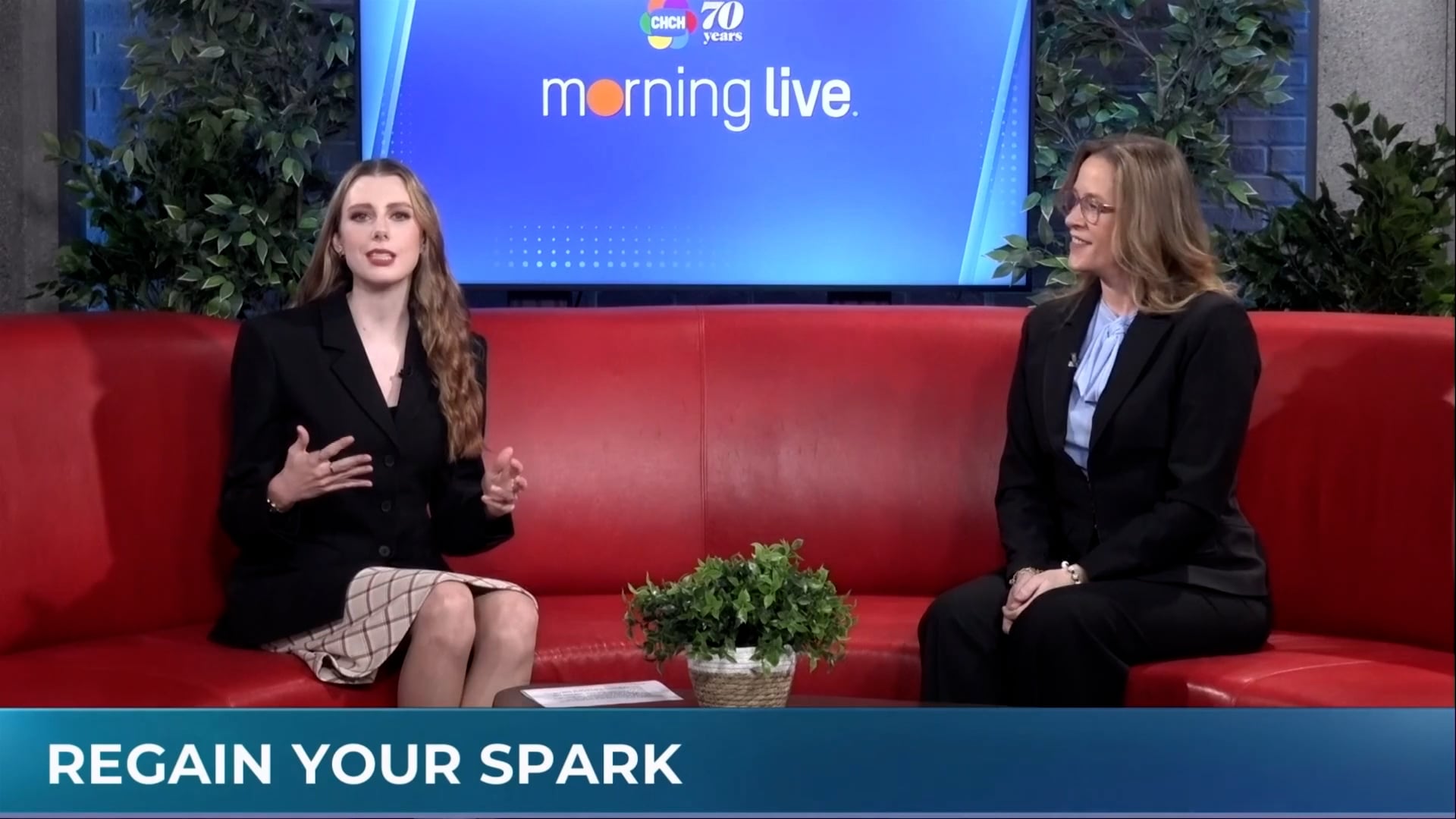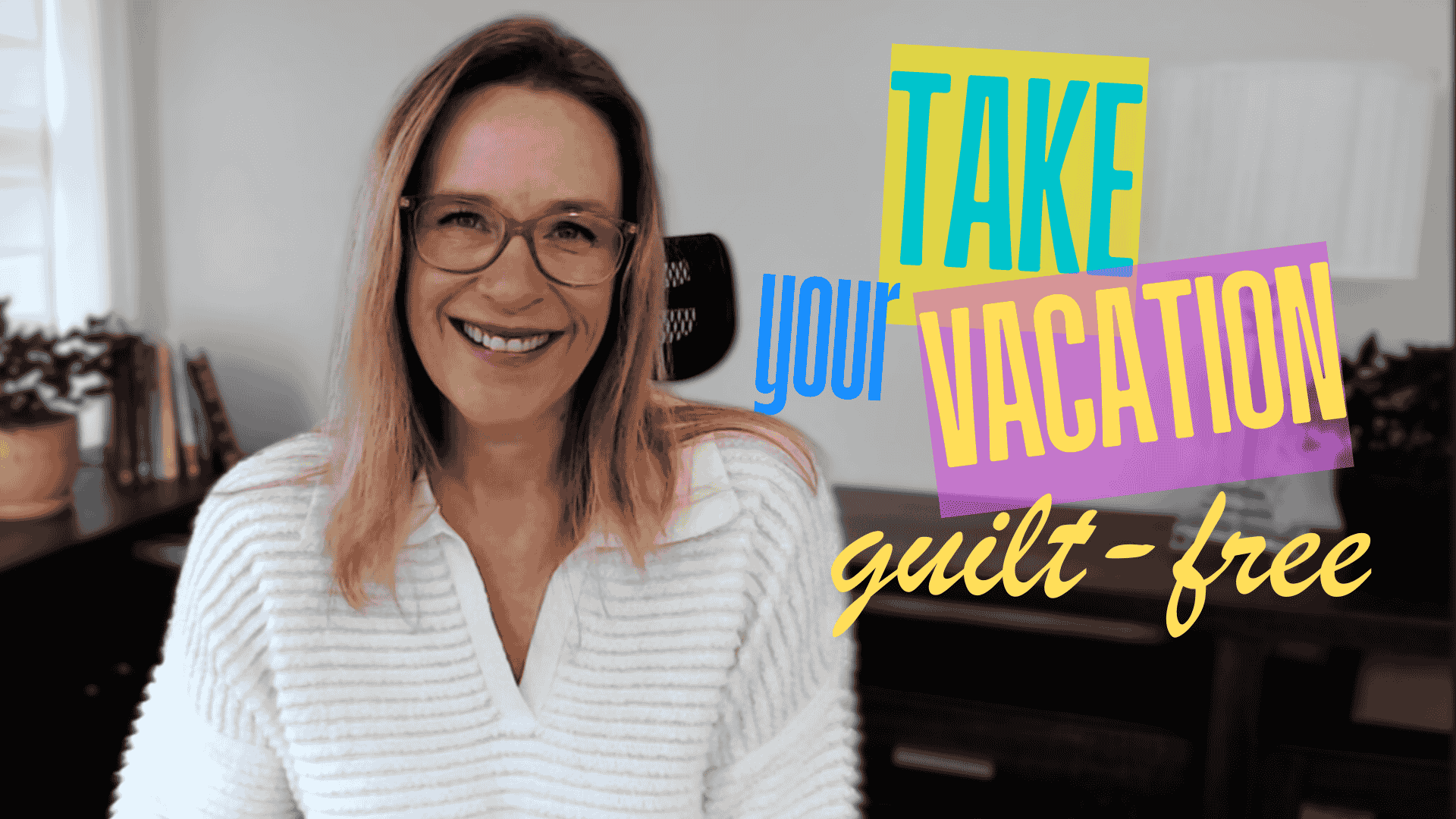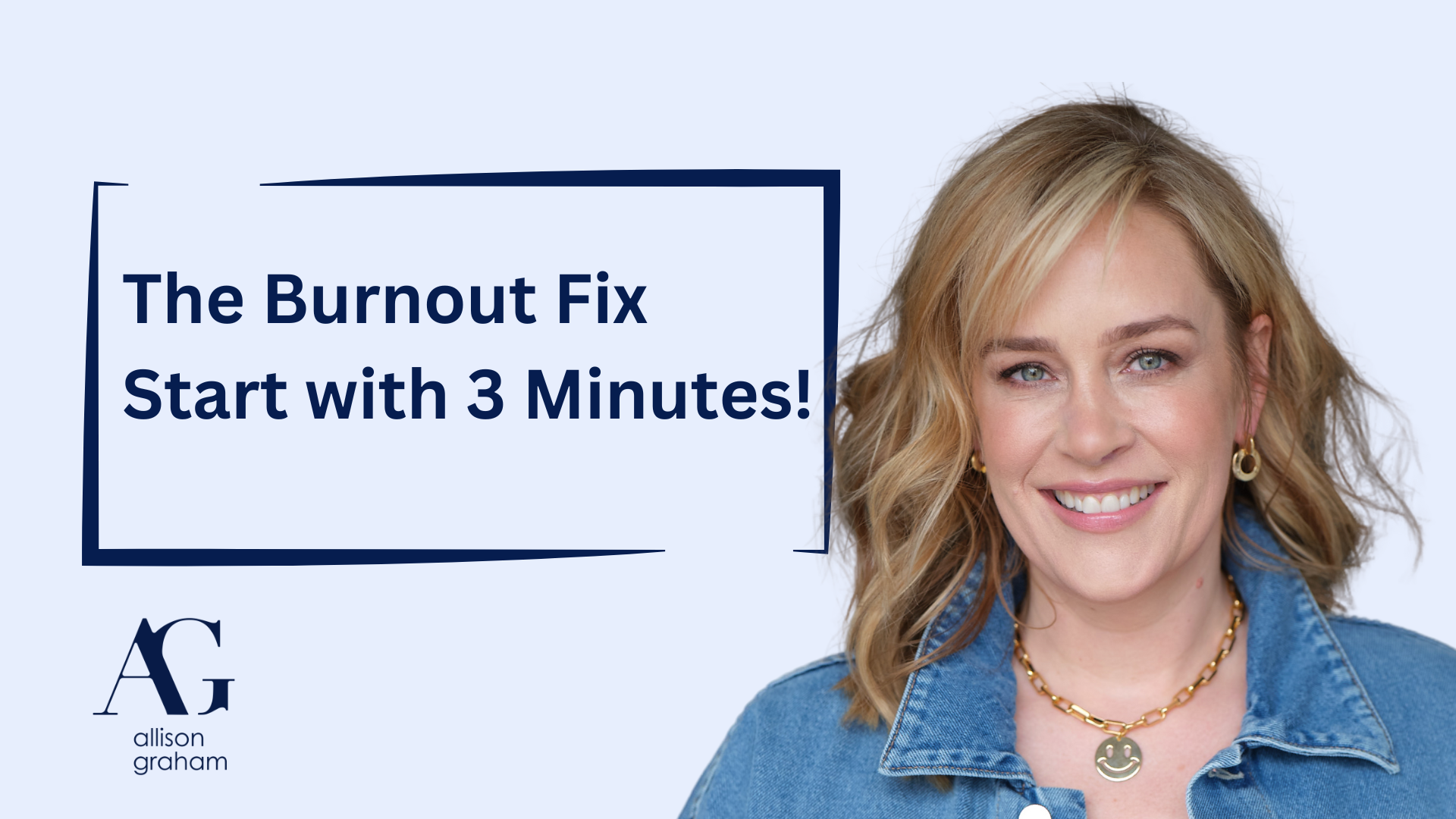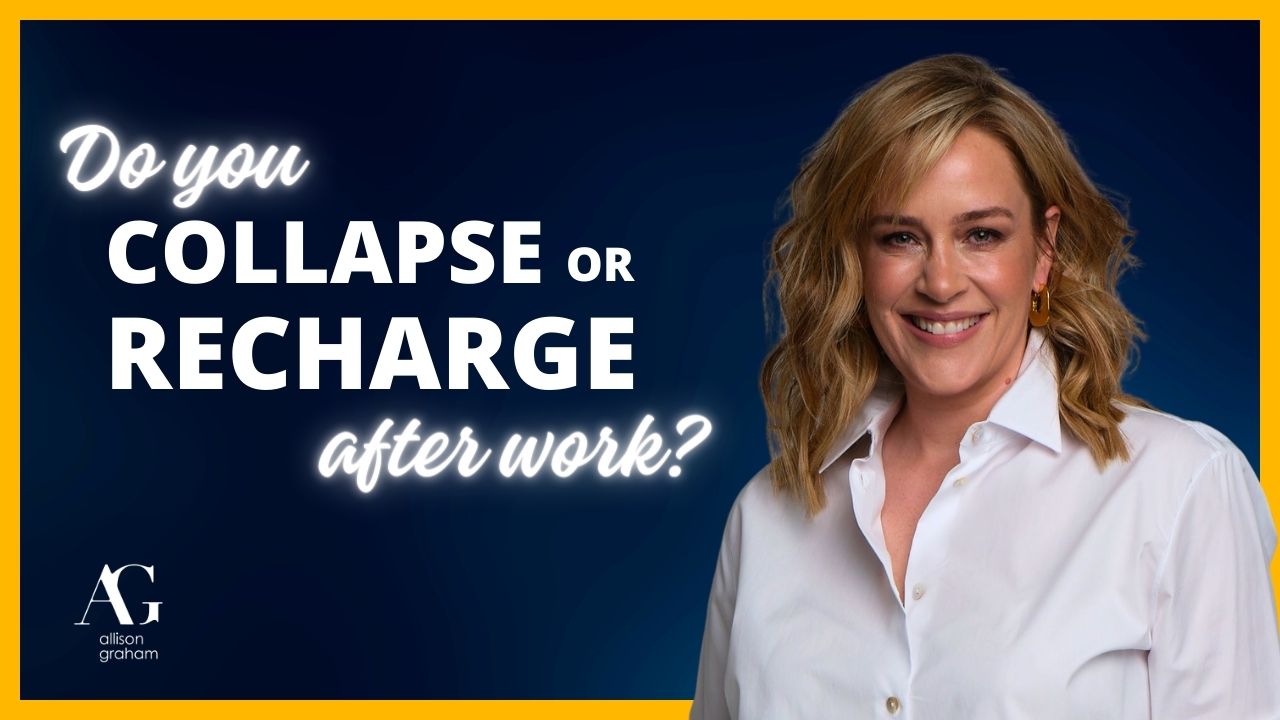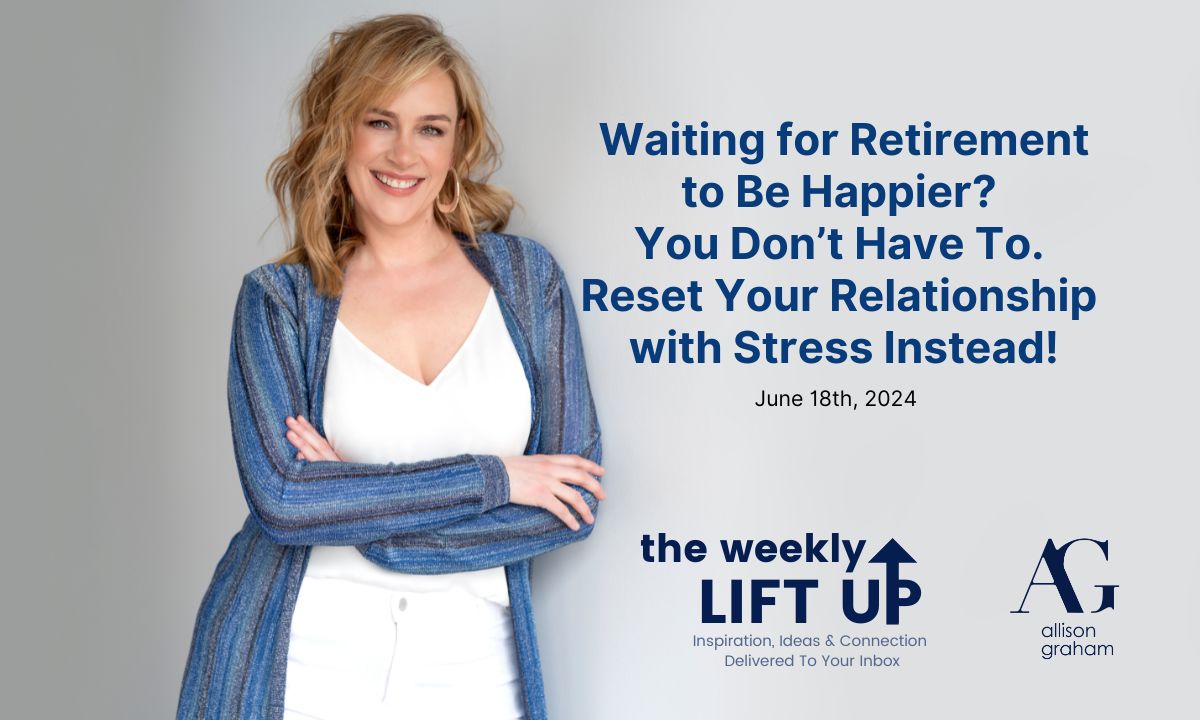Allison Graham shares her chronic pain story and strategies with Tim Bolen and Dina Pu on Breakfast Television Oct 2nd 2025
Succeeding with Chronic Pain: Summary of Key Points
Allison Graham, a stress expert and workplace resilience strategist, shared her 17-year (19-years!) journey with chronic pain, emphasizing the importance of strategic resource management and an empowered mindset. She advised avoiding commitments when pain is worst and minimizing energy drains. Allison highlighted the need to choose an empowering approach to pain, validating personal experiences, and managing pain’s impact on mood and relationships. She stressed the importance of self-awareness and communication with loved ones. Allison’s strategies aim to help individuals with chronic conditions maintain productivity and quality of life.
Action Items
- [ ] @Allison Graham – Follow up with Allison Graham on her website at allisongraham.com and on LinkedIn, YouTube, and other social media platforms.
Outline
Allison Graham’s Journey with Chronic Pain
- Dina Pugliese introduces the topic of chronic pain, noting that one in five Canadians live with it.
- Tim Bolen introduces Allison Graham, a stress expert and workplace resilience strategist, who has lived with chronic pain for 17 (19) years.
- Allison Graham shares her story, explaining that her chronic pain started after a simple surgery went wrong, leading to nerve pain.
- Allison describes the initial five years as especially difficult, trying to run a business while dealing with chronic pain, often appearing fine to others but feeling internally collapsed.
Strategies for Managing Chronic Pain
- Allison emphasizes the importance of being strategic with resources, as chronic pain limits the amount of energy available daily.
- She advises avoiding important meetings or tasks in the afternoon when her pain is worst, focusing on productive work in the morning.
- Allison suggests identifying and minimizing moments of angst and energy drain to supercharge productivity.
- She stresses the importance of choosing an empowering approach to pain, deciding to live a fulfilling life despite the limitations.
Validating Personal Experiences and Managing Emotions
- Allison advises validating one’s own experience with pain, as it can be invisible to others.
- She discusses the impact of pain on mood, likening it to being “hangry” and emphasizing the importance of self-awareness.
- Allison shares her strategy of bringing awareness to her pain before entering meetings or conversations to prevent it from affecting her behavior.
- She highlights the importance of managing pain in familiar relationships, asking for space and grace when feeling particularly intense pain.
Resources and Final Thoughts
- Allison provides her contact information, including her website, LinkedIn, and YouTube, for those interested in her work.
- Dina Pugliese and Tim Bolen express gratitude for Allison’s insights and acknowledge her as a beacon of hope for others living with chronic pain.
Interview full transcript:
ALLISON_BT_TO_20251002
Fri, Oct 03, 2025 12:11PM • 7:13
SUMMARY KEYWORDS
Chronic pain, coping mechanisms, workplace resilience, stress expert, invisible health conditions, strategic resources, productivity, empowering approach, pain management, self-awareness, family support, emotional regulation, resilience, invisible illness, energy management.
SPEAKERS
Dina Pugliese, Tim Bolen, Allison Graham
Dina Pugliese 00:04
Good morning. Welcome back, everybody. Did you know One in five Canadians live with chronic pain, and millions more battle invisible health conditions every single day.
Tim Bolen 00:13
Stress expert and workplace resilience strategist Allison Graham is back on the show and very familiar with reality of living with chronic conditions as a pain patient for the last 17 years, she’s here to share the best strategy that she has found to keep working when your body just will not cooperate. Good morning, Allison, good
Dina Pugliese 00:32
morning. So good to see you, Allison, I have family members who have to deal with and suffer through chronic pain. Whenever I’ve had something where I’m in pain, I always think, my gosh, how does anybody get through because it is chronic, and you said there are coping mechanisms and you can live a full life. So tell us a little bit about your story.
Allison Graham 00:49
Well, it started, I had a surgery. It was very simple, and things went wrong, and ultimately I ended up with nerve pain. And the first five years were really difficult because I was running a business and trying to still live my former life, and like so many Canadians going to work, putting a smile on my face, but behind the scenes collapsing, and I don’t think we’re having this conversation enough, because the people who I work with are often very high executives, and nobody knows they’re In pain, it’s invisible, or they have an autoimmune condition, or something that’s holding them back and causing their body to not be fully functioning.
Tim Bolen 01:29
What do we do? Anybody watching at home that is going through this, take us through some points that you have found have been really helpful for you.
Allison Graham 01:35
Well, it can be a blessing in a way which is hard to say, but often it forces you to be very strategic with your resources. You don’t have the luxury of being overly stressed or of getting sucked into the drama at the workplace or feeling like just sorry for yourself because you only have so many resources every day to use, and you have to be very strategic about how you allocate those and so thinking, When is your pain the worst? Right? For me, it’s often in the afternoon. So I don’t book really important things to do or meetings in the afternoon if I can avoid it, but in the morning I feel usually fresh and good. And so that’s what I do, my biggest thinking work. And so making decisions like that and really being productive and strategic with how you’re doing your work, because otherwise your pain is going to control your life.
Dina Pugliese 02:27
That’s right. And you see super charge your productivity. So what does that look like?
Allison Graham 02:31
It really is looking for. What are those repeating moments of angst, those times where it’s just sucking out your energy for because you don’t have systems in place. So look at those and identify them and decide what are some of the options I can do to actually minimize that so that it’s not causing me more and more like energy drain, because your body’s already dealing with the big stuff, the pain.
Tim Bolen 02:57
The next one there is, choose an empowering approach to your pain if
Allison Graham 03:01
you’re going to be in pain, which unfortunately, if you have chronic, long term pain, that’s the reality. You can do an activity that you love and be in pain, or you cannot do the activity and still be in pain. And so my choice was, I’m going to figure out how I can still have a fulfilling life, how I can still serve my clients and show up, and I had to make some sacrifices behind the scenes, right where I wasn’t able to do things that I would have loved to have done, but I am not willing, and I hope others aren’t either. And I know a lot of people aren’t willing to be defined by their limitation physically, and that is an attitude that you need to choose each and every day to be resilience.
Dina Pugliese 03:45
And it’s how to manage it and live and thrive with it, in spite of it. And you say, validate your own experience. So how?
Allison Graham 03:54
And the reason I say this is so important is because a lot of people, you can’t see that they’re in pain. And when people know me behind the scenes, they know what the collapse looks like, right? But they see a lot of this or out on a stage in front of, you know, 100 people. And so I don’t want my pain to be the story. I don’t want it to be, but I know behind the scenes what I’m going through. And I think a lot of times people talk about their pain to help, try to share the pain, right? And feel like maybe it’s going to make me feel better, but it doesn’t. It actually can intensify the pain, because it’s everything that’s happening in your life. How do you
Tim Bolen 04:35
separate then that pain from the mood that you’re in or working into affecting your mood.
Allison Graham 04:42
Know How? If you’re hungry, you can get a little irritable and angry. I call it hangry, right? I call this hangry. It’s knowing that when you’re in pain, it can be so irritating and so all encompassing, it can impact your your ability to perform and. At work. So my rule is, any time I walk into a room, I did it, walking into your studio here today at BT, right where is my pain at right now? And just bringing awareness to that and going, Oh, I feel you like making friends with that pain. So you know if you’re at risk, if it’s going to interrupt like so when you’re walking into a meeting or about to have a conversation, recognizing, am I angry? Is my pain going to influence and put me at risk for being more irritable or grumpier or a little more short tempered, whatever it is, and then bringing awareness to that so it doesn’t impact your relationships and
Dina Pugliese 05:36
at home, that’s the other thing, because then maybe that’s where you let loose, and that’s where everyone gets the worst of you. How do you manage that your familiar relationships?
Allison Graham 05:44
So I have the blessing of an incredible family who is so supportive, but we’ve had to have a lot of conversations, because it’s absolutely true, we tend to take out our angst on the people closest to us who love us. Have the conversation. So when I’m feeling pangry, I literally would say, just want you to know pain is very intense right now, and I asked for a little bit of space and grace to be able to do that, as opposed to just letting it go. You know, all day and you’re just in a bad mood, it’s like recognizing it and having the self awareness of, like, I’m a little extra edgy, and then calling it out, not for permission to be mean, not for permission to be rude, but to say, just please give me a little bit of grace right now, because the pain is really intense, grace
Tim Bolen 06:29
and space. Yes, thanks for sharing. Thank you so much. Where can we follow you?
Allison Graham 06:33
Allison Allison graham.com, and I’m on LinkedIn and YouTube and all of that. But of course, thank you. I just want people who are living in pain and still succeeding. I see you.
Dina Pugliese 06:45
and your’e a beacon of light and hope as to how to get through that day to day. Thank you so much.
All right, coming up next, we have got a release to add to your fall reading list. We’re going to tell you about a second chance Roman romance novel by a debut Canadian author that’s coming up right after this, and a connection. We love her very much. She used to work here on this show in this building, and, yeah, on a couple of shows, actually. So I’m so happy she’s here. We’ve got Josh Richards coming up right after this. You.



